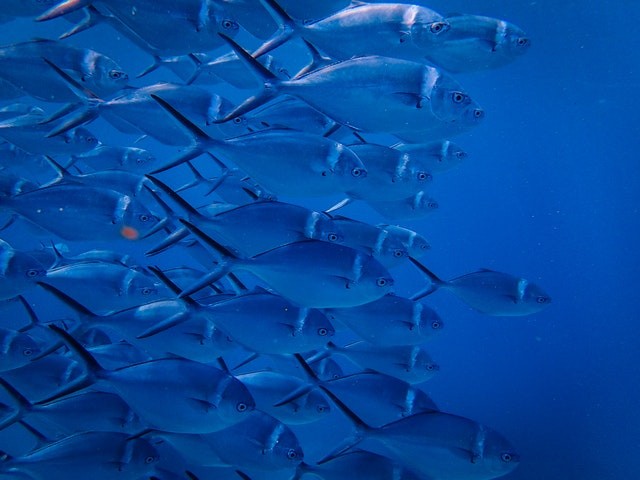Mirror self-recognition (MSR) is considered evidence of self-awareness. Passing the mark test, in which animals touch or scrape a mark put on their body at a spot that can only be seen indirectly in a mirror, is used to assess an animal's MSR capacity.
Apart from chimps, evidence for other animals passing the mark test has been questioned, making it inconclusive.
An international team of researchers led by Masanori Kohda of the Graduate School of Science, Osaka City University, has provided more evidence that the cleaner fish Labroides dimidiatus has the capacity for MSR by addressing criticisms leveled at their previous work on the cleaner fish Labroides dimidiatus.
"Previously, we had shown three out of four cleaner fish scrape their throats several times after swimming in front of a mirror using a brown marking on the throat area of L. dimidiatus, a number on par with similar studies done on other animals like elephants, dolphins, and magpies," Professor Kohda says in a report published in PLOS Biology.
Read also: Real Extent of Overfishing: How this Disruptive Behavior Can Cause Irreversible Destruction
Criticisms in Research

According to Phys.org, one of the objections to this outcome was the small sample size and the need for further trials with good results.
This study, conducted in collaboration with researchers from Germany's Max Planck Institute for Animal Behaviour and the Switzerland's University of Neuchâtel, increased the sample size to 18 cleaner fish, with a 94 percent positive result of 17 of them exhibiting the same behavior as in the previous study.
"We wondered if the reason these animals didn't attend to the mark was that it didn't represent something in their natural environment that they would be concerned about," Prof. Kohda says. We looked at similar studies done on monkeys, pigs, dogs, cats, and other animals that tested negative."
The idea that the tactile sensation of the mark, together with seeing the brown mark in the mirror, might elicit behavior that does not show MSR was a critique in reaction to this.
To address this, the researchers injected the brown mark 3 mm deep into the fish's neck to see how they would react to physical stimuli (as opposed to 1 mm).
The mark was hardly visible at such a depth, but they discovered that fish with the deeper injection scratched their neck at identical rates, whether a mirror was present or not.
The scientists found that no fish injected with green or blue markings scraped, highlighting the necessity of utilizing ecologically relevant signs to the animals in MSR investigations.
Is it self-awareness?

Some commentators questioned whether L. dimidiatus recognized himself in the mirror image, not another fish.
According to Science Direct, a mirror-trained animal goes through three phases after being introduced to a mirror image of itself. It first exhibits hostile behavior, indicating that it believes the mirror image is another animal; then it exhibits strange yet non-aggressive movement, indicating that the mirror image is not another animal.
Lastly, it looks at its own body repeatedly without anger. MSR is now feasible since it can see the mark and scrape it off.
"Our previous study demonstrated MSR in L. dimidiatus; however, studies with other animals have shown that just moving a mirror reignites aggressive behavior, suggesting the animal has only learned a spatial contingency, not MSR," says Prof. Kohda.
In addition, to assure the L. They placed mirror-trained fish in adjacent tanks separated by the transparent glass to see if dimidiatus that passed the mark test genuinely recognized themselves.
After two to three days, when the fish had significantly reduced their hostile behavior against one another, they were marked the traditional method the next night. During the 120 minutes of exposure to each other the following day, none of the fish scratched their throats.
Prof. Kohda explains, "This result implies that a visual, ecologically relevant stimulation on another fish is insufficient to cause throat scraping on marked animals."
For more animal news, don't forget to follow Nature World News!
© 2025 NatureWorldNews.com All rights reserved. Do not reproduce without permission.




